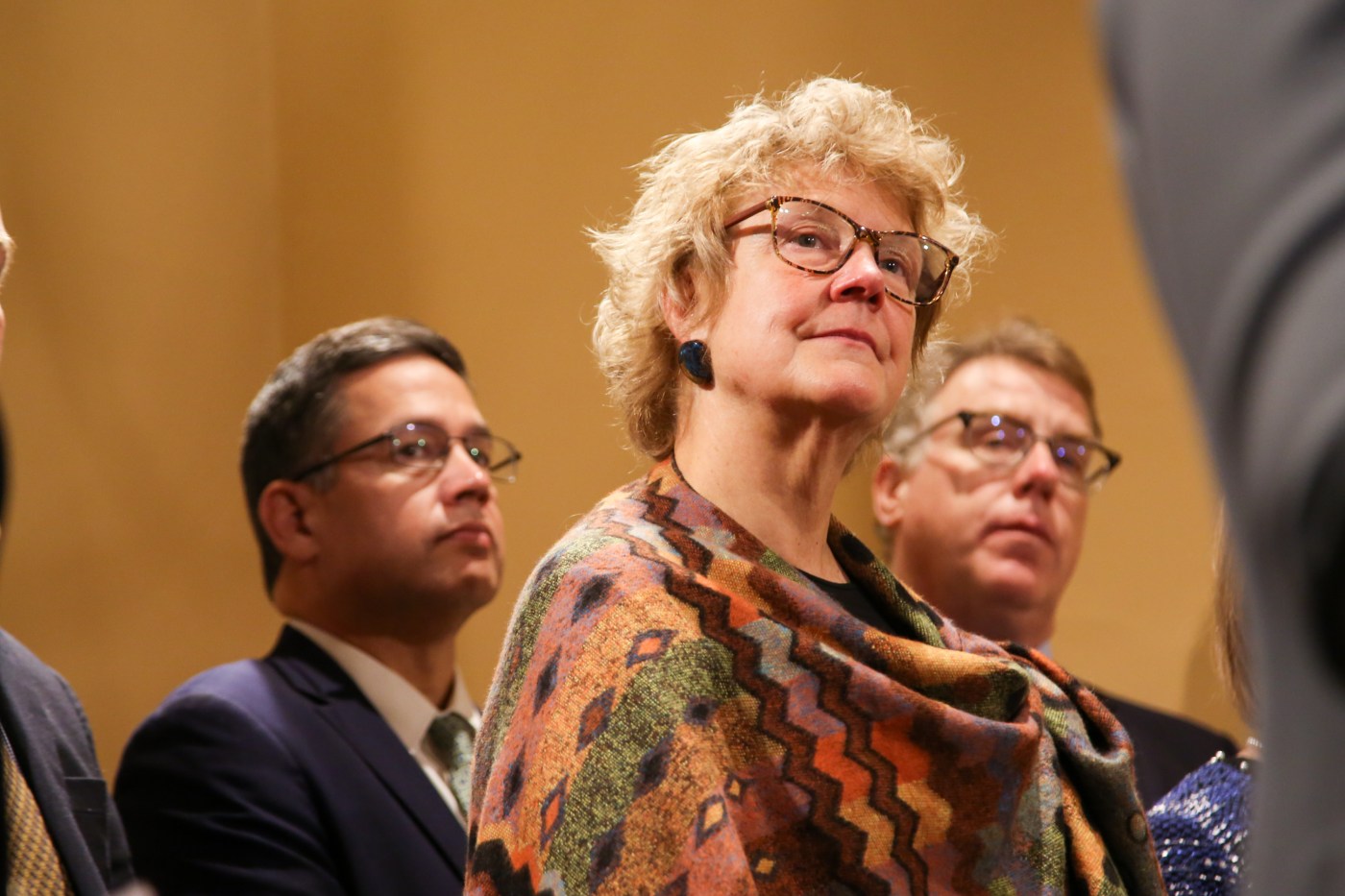
Healey’s climate chief calls for more specifics ahead of Massachusetts 2050 goals
The Healey administration released a set climate-related recommendations Wednesday that highlight the need to find money for decarbonization strategies as climate-related impacts and northward migration patterns put more and more pressure on the region.
The report, authored by Climate Chief Melissa Hoffer’s Office of Climate Innovation and Resilience, outlines 39 actions to deal with rising global temperatures, which have reached 1.1 degrees Celsius above pre-industrial levels, and more extreme weather events across the world, including the Bay State.
“Massachusetts, like other state and local governments, must play a leading role in climate policy and implementation, spurring innovation in technology, climate finance, and resilience,” the report said.
State law requires Massachusetts to hit net zero carbon emissions by 2050, an effort that will require “substantial” investments, the report said. The costs of not making those investments “will be even greater.”
But the state, the report points out, lacks a plan to finance the investments needed to reach those goals.
Hoffer’s office recommends preparing an economic analysis of the investments needed to achieve greenhouse gas emission reduction targets, including the 2050 net zero mandate, by December 2024.
“New federal funding for climate action … can be anticipated to mobilize between 8-30% of total decarbonization investment,” according to the report. “The commonwealth should conduct economic analyses of the total investment required to meet our 2050 net zero mandate and resilience needs, and develop specific funding strategies for both.”
Massachusetts will start publishing an annual report card starting this fall to track the state’s progress towards reaching climate goals mandated by state law. A design for the report is due by Nov. 1 and the document will be published by Dec. 1, the report said.
“Because building and transportation fossil fuel combustion jointly account for 72% of the commonwealth’s emissions, efforts to reduce reliance on fossil fuels in those two sectors through electrification will feature prominently in the Climate Report Card,” the report said.
A 2022 statewide climate change assessment identified climate-drive in-migration from other regions in the United States and migrations from other areas of the world to the Northeast “as an urgent concern with a major level of consequence.”
The Northeast, the Wednesday report from Hoffer’s office said, is projected to “receive significant migration,” something the state should begin planning for immediately.
“Planning for costs in the form of additional services and additional demands for housing (which can affect regional housing markets) should begin now. There are also economic development opportunities as this migration may help reverse trends in regional population decline,” the report said.
The report also calls for a statewide plan to electrify all state-owned vehicles and equipment fleets and to consider creating a single entity or agency to coordinate the installation of charging infrastructure.
An executive order signed by former Gov. Charlie Baker called on the state fleet to consist of 5% zero emission vehicles in 2025, 20% in 2030, 75% in 2040, and 100% in 2050. Baker also required Massachusetts to have 350 electric vehicle charging stations on state property in 2025 and 500 in 2030, among other targets.
“Despite these targets, the Commonwealth is facing significant challenges in its efforts to electrify its vehicle fleet,” the Healey administration’s report said. “There are varying reasons for the challenges in electrifying the fleet, including the lack of sufficient charging infrastructure at state-owned facilities and of well-resourced operations and maintenance plans for the charging infrastructure.”
A car sits stranded amid debris after historic rains left a swath of damage and destruction in Leominster in September. (Chris Christo/Boston Herald)


